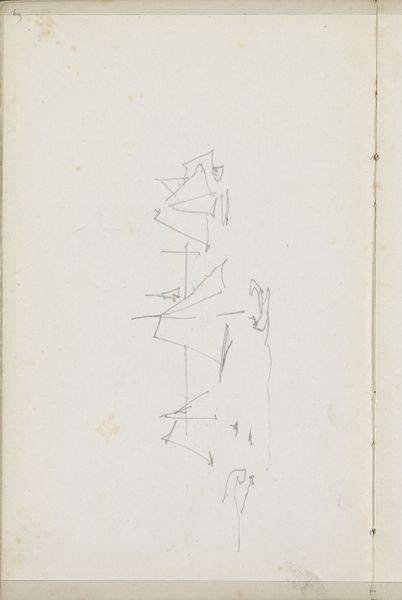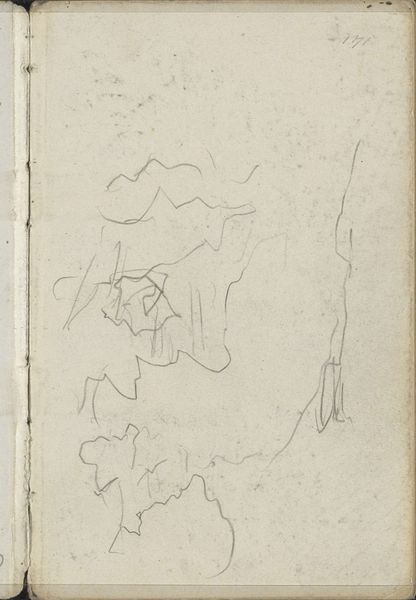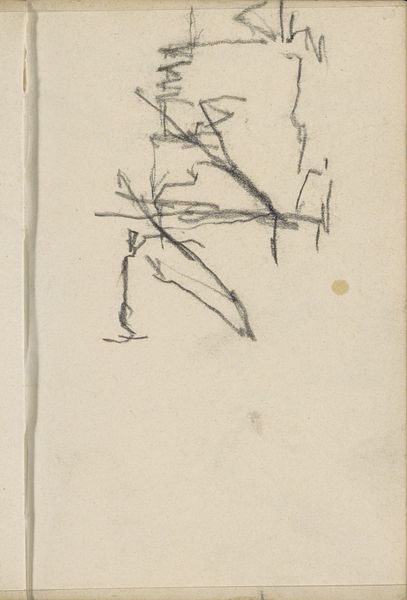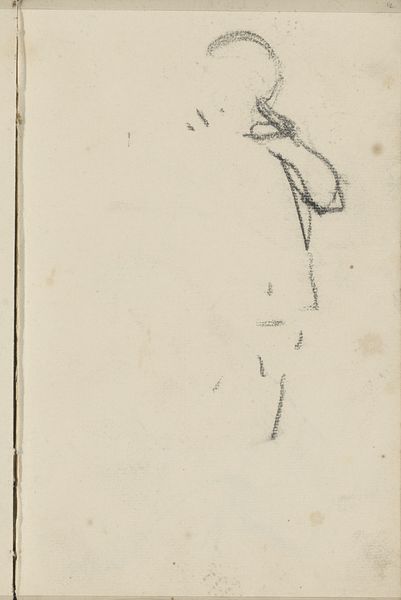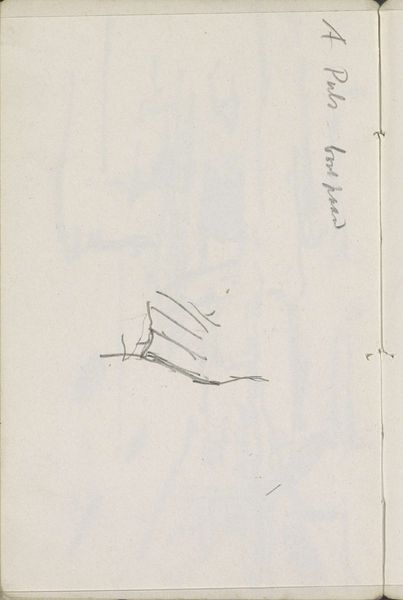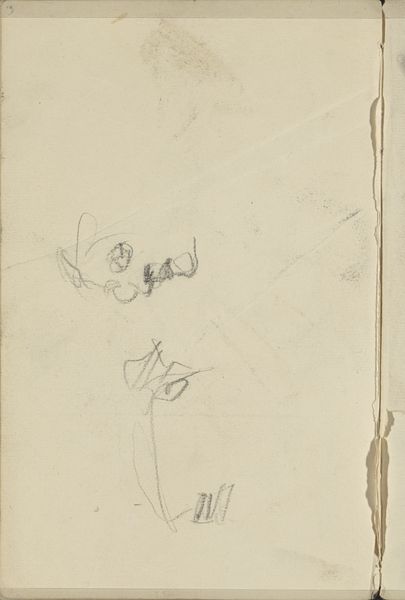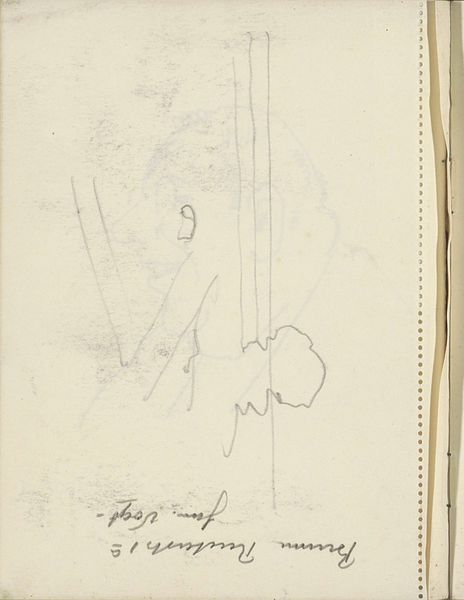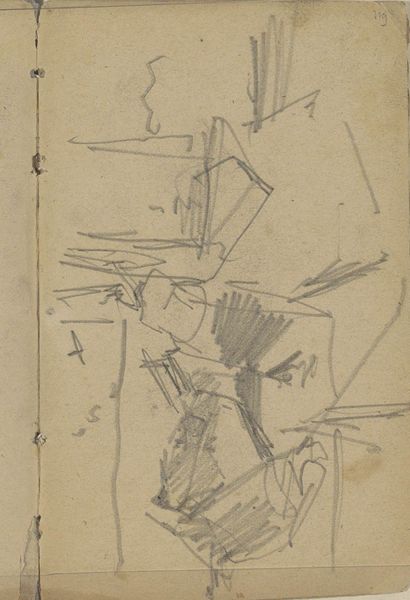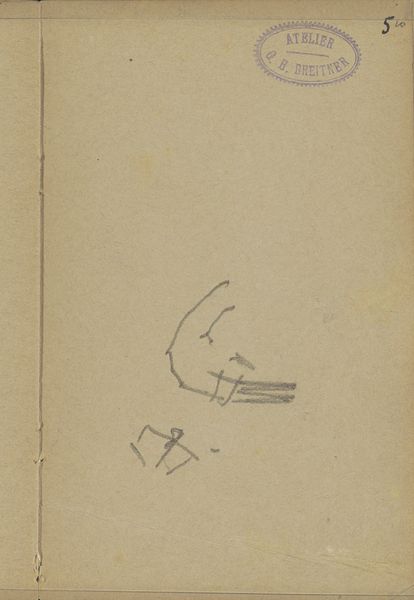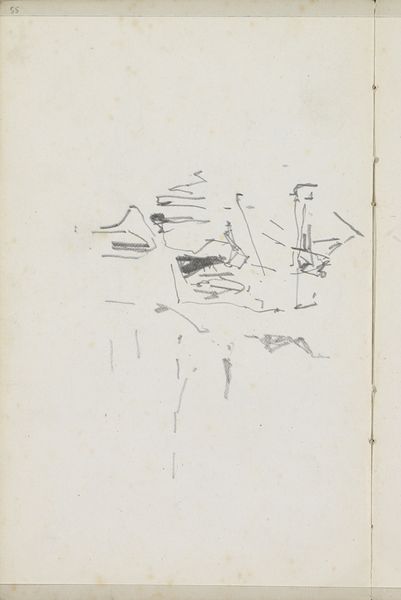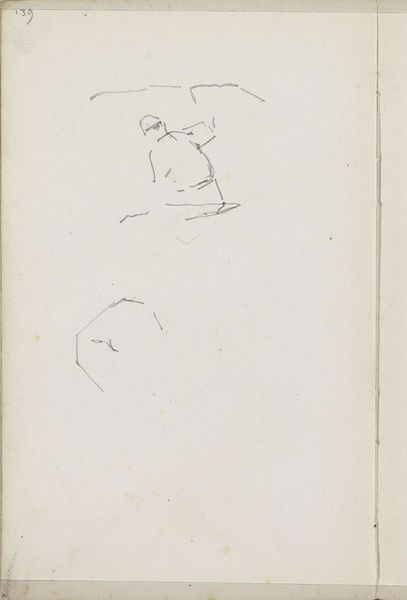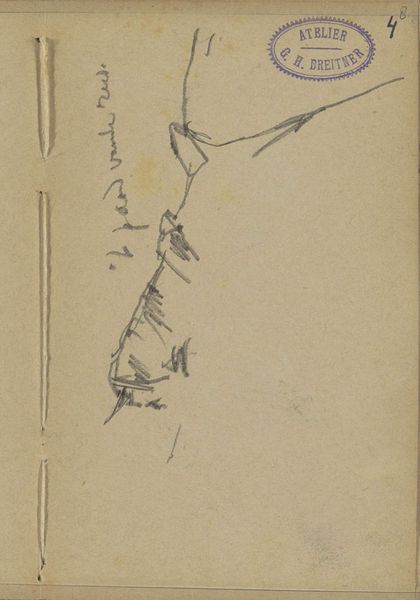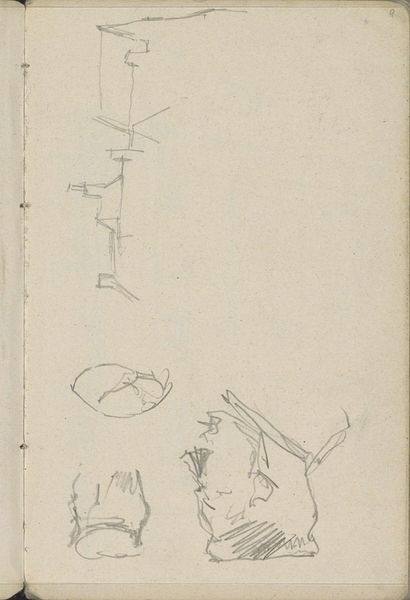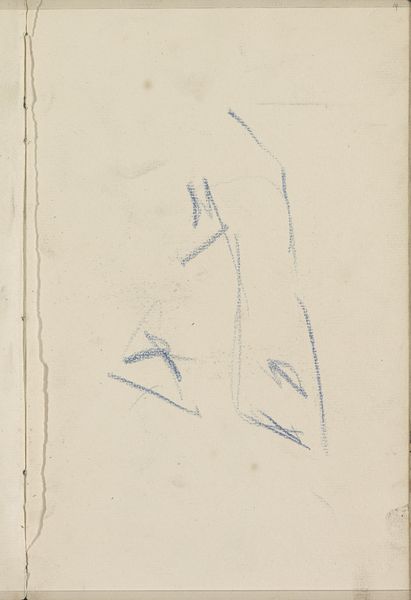
drawing, ink, pencil
#
drawing
#
quirky sketch
#
pen sketch
#
sketch book
#
incomplete sketchy
#
personal sketchbook
#
ink
#
ink drawing experimentation
#
geometric
#
pen-ink sketch
#
pencil
#
abstract-art
#
abstraction
#
pen work
#
sketchbook drawing
#
post-impressionism
#
sketchbook art
Copyright: Rijks Museum: Open Domain
Curator: So, here we have "Doorgestreepte Annotaties," which translates to "Crossed-out Annotations," a sketch rendered circa 1887-1888. Willem Witsen used pencil and ink on paper for this. What catches your eye initially? Editor: It’s so raw, isn’t it? Feels like stumbling onto a thought process caught mid-flight. Like a secret whisper of shapes fighting to be something on a blank page. A rebellion against form! Curator: The "fight," as you call it, can be contextualized. The late 19th century was rife with rapid social and industrial change, with new artistic movements questioning traditional academic styles. Witsen, connected to the Tachtigers, or the Movement of Eighty, placed emphasis on individualism, direct engagement with daily life, and emotional expression. Editor: Absolutely, I love thinking about the art scene he occupied at that time, makes you think...maybe the cross-hatching is symbolic of the barriers he aimed to dissolve through art. What do you think he scratched it out or was trying out something then abandoned and tried to find better forms? It's as if he was wrestling, on paper, with modernity. Curator: Yes! And beyond its visual components, "Doorgestreepte Annotaties" opens an entry point to discourse on artistic agency and subversion. For whom, exactly, were these annotations originally intended? To what extent is erasure its own declaration? Witsen was well connected to literary journals and his works offered social commentary from gender to politics. Editor: True, he used art to respond to a world, but at its heart it seems a visual, a pure kind of energy on display here. Seeing it makes me want to just grab a pencil and let my hand dance across paper... without thinking too much! Like a game almost. Curator: That brings us to a really essential intersection: the point where broader societal implications meet an individual artist’s inner landscape. It provides a visual record and gives us insight on one possible interpretation to post-Impressionism. Editor: Right. In a world that feels increasingly curated and polished, stumbling upon a glimpse into a 19th century mind in progress is precious. Thanks, Willem!
Comments
No comments
Be the first to comment and join the conversation on the ultimate creative platform.
